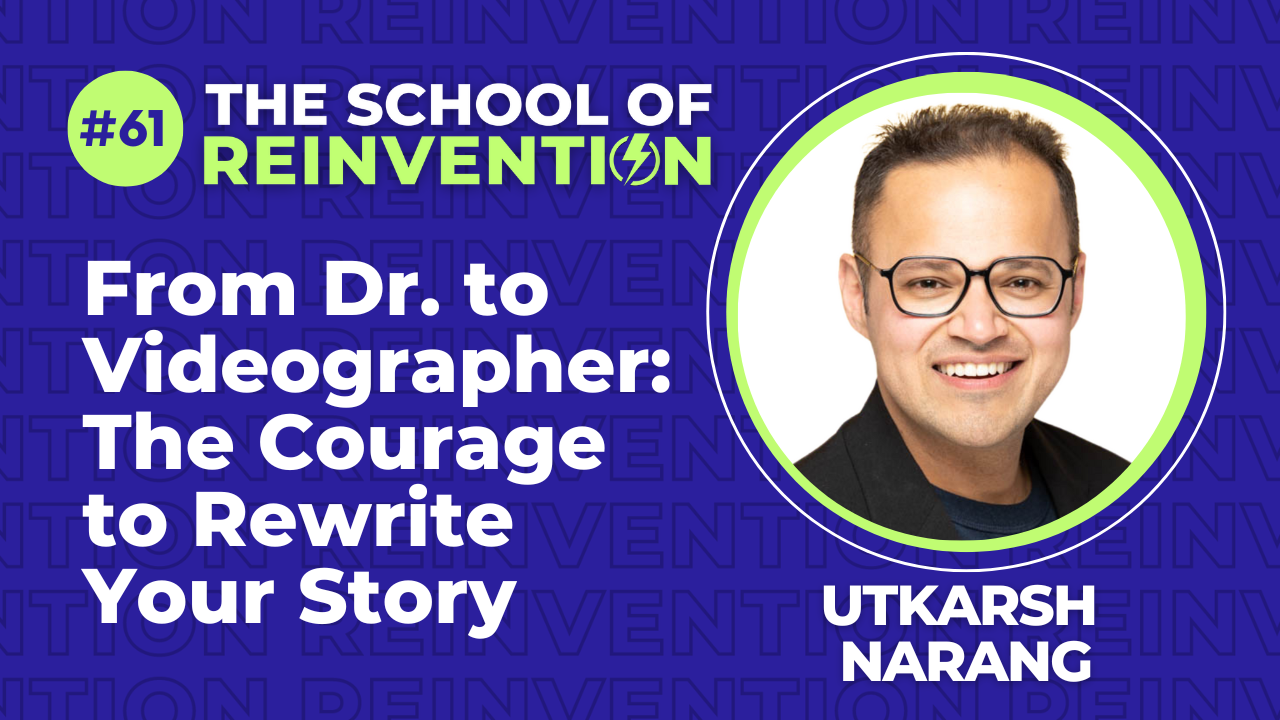Summary
In this episode, learn how Utkarsh Narang transitioned from physical therapist to executive coach and discover how to overcome fear and societal expectations to reinvent your own career. Utkarsh shares his personal journey, emphasizing the importance of self-discovery, confidence, and embracing uncertainty. Gain valuable insights into identifying your “why”, stepping outside your comfort zone, and ultimately authoring your own life story. Tune in to be inspired and empowered to create a life on your own terms.
Key Takeaways
- The journey of self-discovery is ongoing and complex.
- Dissatisfaction can be a powerful motivator for change.
- Clarifying your ‘why’ is essential for any transition.
- Embracing new opportunities often requires stepping out of comfort zones.
- Confidence can be built through preparation and seizing opportunities.
- Societal expectations can hinder personal growth and reinvention.
- The choice to write our own stories is a personal responsibility.
- Success is defined by individual values and actions in the present moment.
- Living authentically requires courage to defy conventional paths.
About Utkarsh
Utkarsh is a Learning Consultant, Executive Coach, Facilitator and Content Creator based in Melbourne, Australia.
Over his 18-year career, from being a physiotherapist, and a good one, to filming and editing 400 hours of content for a Columbia Business School professor, to scaling a startup and leading sales to now helping individuals and teams outperform themselves, he has learned to make fear his ally in living a courageous life. He has a passion for understanding human behavior and using his diverse experience in building programs for organizations across the globe.
When not helping others get better, he enjoys working on himself through reading, meditation, exercise, and raising two boys, 13 and 10, with his wife.
Links:
Utkarsh TEDx Talk – Can Fear Push Us to be Courageous
Related Articles in The Journey to Reinvention Blog
Unlocking Your Career Dreams: How to Successfully Change Careers
How to Overcome the Fear of Quitting Your Job

